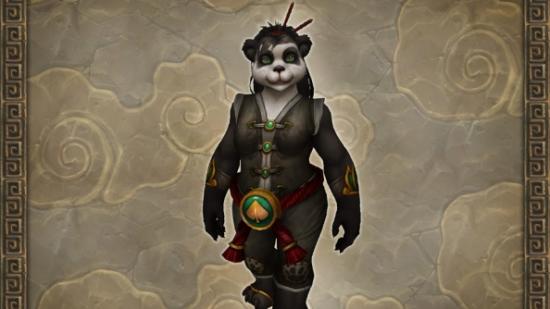Didier Drogba is one of the most valued players in the World of Soccer (a bit like the World of Warcraft, but with less Elves). He was one of Time Magazine’s 100 most influential people in 2010 (due to his role in securing the peace in his home country of Cote D’Ivoire) and last week he scored the crucial goal that meant that his club, Chelsea, won the club football’s most prestigious prize (the European Cup). And he’s in the process of signing a contract to play for a little known Chinese club, Shanghai Zongbang. The man who’s paying him £250,000 a year is the man who brought WoW to China – then lost it, spectacularly. His name is Jun Zhu.
Time for the boring bit of the biography: Jun Zhu was born in Shanghai in 1966 and attended the prestigious Shanghai Jiaotong University (though it’s not clear if he finished his course), before founding an information technology company, called Founder Technology. At 27, he moved to the United States, to work at QJ (USA) Investment Ltd and in 1999 he founded The Nine City Inc – often known as The9, the company he still runs. The name comes from the belief that online gaming is the “ninth art”, after the traditional ones of painting, sculpture and so on.
In June 2005, Jun andThe9 bought the license to operate and distribute World of Warcraft in China, which pushed Blizzard’s global playerbase to unforeseen levels. For four years, The9 built the game up in China, achieving and maintaining a peak of 1 million concurrent users. Blizzard, desperate to get into the world’s biggest market, had accepted a royalty rate of only 22% – which still produced around $50 million of revenue per year.
These were the golden years for Zhu. Forbes listed him in 2008 in its top 400 wealthiest individuals. He struck deals to host Guild Wars, Mu Online, Huxley, Hellgate London, and many other promising titles. EA invested in The9, and all looked rosy. The shares in The9 (listed on the US NASDAQ) hit a peak in July 2007.
Disaster struck in March 2009. China’s sensitive censorship laws meant that Wrath of the Lich King expansion was blocked, whilst the goverment agencies removed the “unhealthy” content from it. The9 stated that their entire profit model was predicated on it – they told JLM Pacific that they would go bankrupt without it, given that they’d paid Blizzard a huge lump sum to release it, and had to pay the bills for the most powerful supercomputers in China. Guild Wars had recently failed, so the servers threatened to stand idle.
Though The9 survived this, by 2009 Blizzard seems to have lost patience. We don’t know why they removed the license from The9, but Activision CEO Bobby Kotick did imply the service quality was inconsistent at the time; “”We believe this new relationship will promote a consistent level of quality and service in mainland China for each of the games that Blizzard Entertainment is partnering with NetEase on, including WarCraft III and StarCraft II, as announced last year.”
Business analysts also believe that The9 simply couldn’t offer a competitive tender when the time came to renew their contract, given their financial troubles. NetEase had already won the Starcraft II contract in 2008, and industry insiders believe that they the royalty rate they offered was as high as 55% – nearly tripling Blizzard’s profit from this market.
(Of course, beyond there may be another reason. Jun Zhu’s second love is games; as the mooted Drogba purchase indicates,his first is football. And the bizarre way he has behaved with his football club hardly would raise confidence in either investors or partners. He’s hired and fired managers and players willy-nilly. He bought both the main Shanghai teams and forced them to merge. In 2007, he forced the manager to name him in the squad for a game against Liverpool. For one season, he made his team play in the countryside. In 2011, he was short of cash, and he sold the whole team. Six months later, his fortunes having recovered, he hired a superstar manager and western star. And so on. He’s not a fan favourite.)
Blizzard didn’t do well out of the relationship change. WoW was suspended while government agencies squabbled over how much to censor it (because of the skeletons and the Death Knight class), and declared the subscription model illegal. The servers were on and off for an entire year, and Wrath was not released for a long time. Meanwhile, the state-owned Founder Tech sued The9 and Blizzard for copyright infringement over the misuse of fonts, which ended with a fine of $212,000.
Despite The9 immediately announcing that it would release a WoW clone, their revenues and share price also plunged – they lost 94% of their revenue in one year. Zhu dropped out of the Forbes rich list in the same year. Since then he’s built his empire back up in an impressive manner- for example, he’s recentlysigned Free Realms, Firefall and Planetside 2 for China – but it seems unlikely he’ll reach the giddy heights of WoW again. Perhaps this is why, to the pain of the Shanghai fans, he’s concentrating on football.
